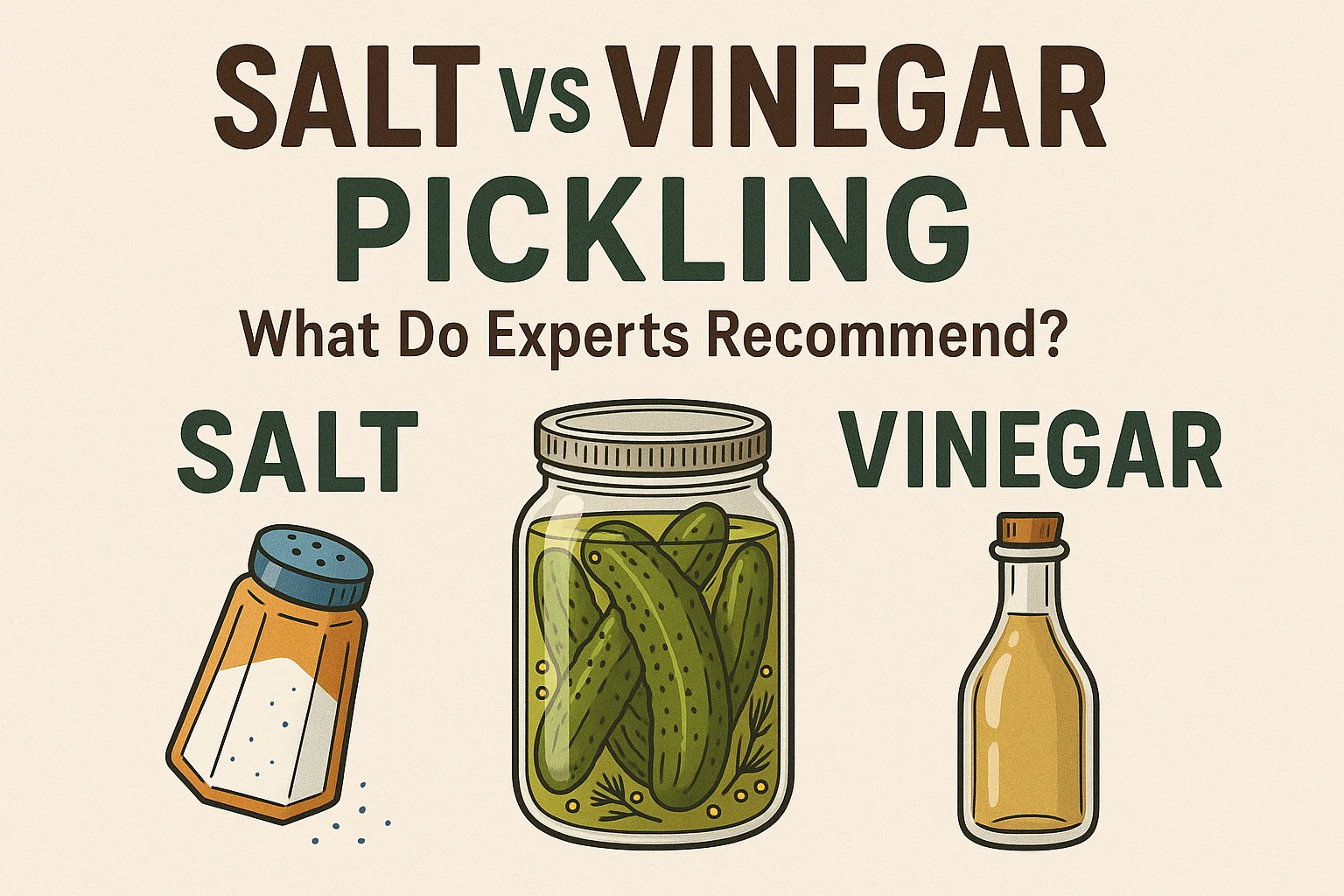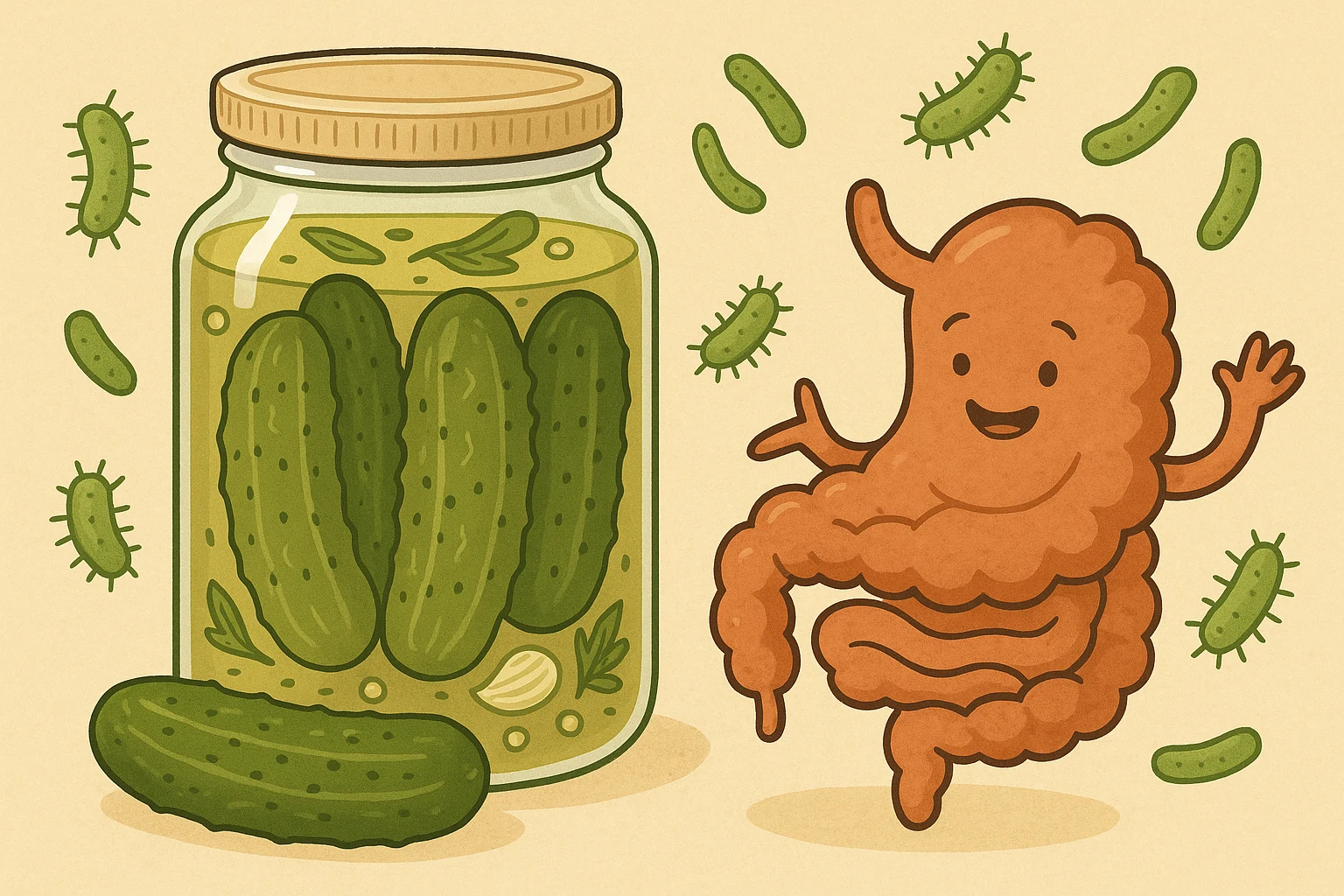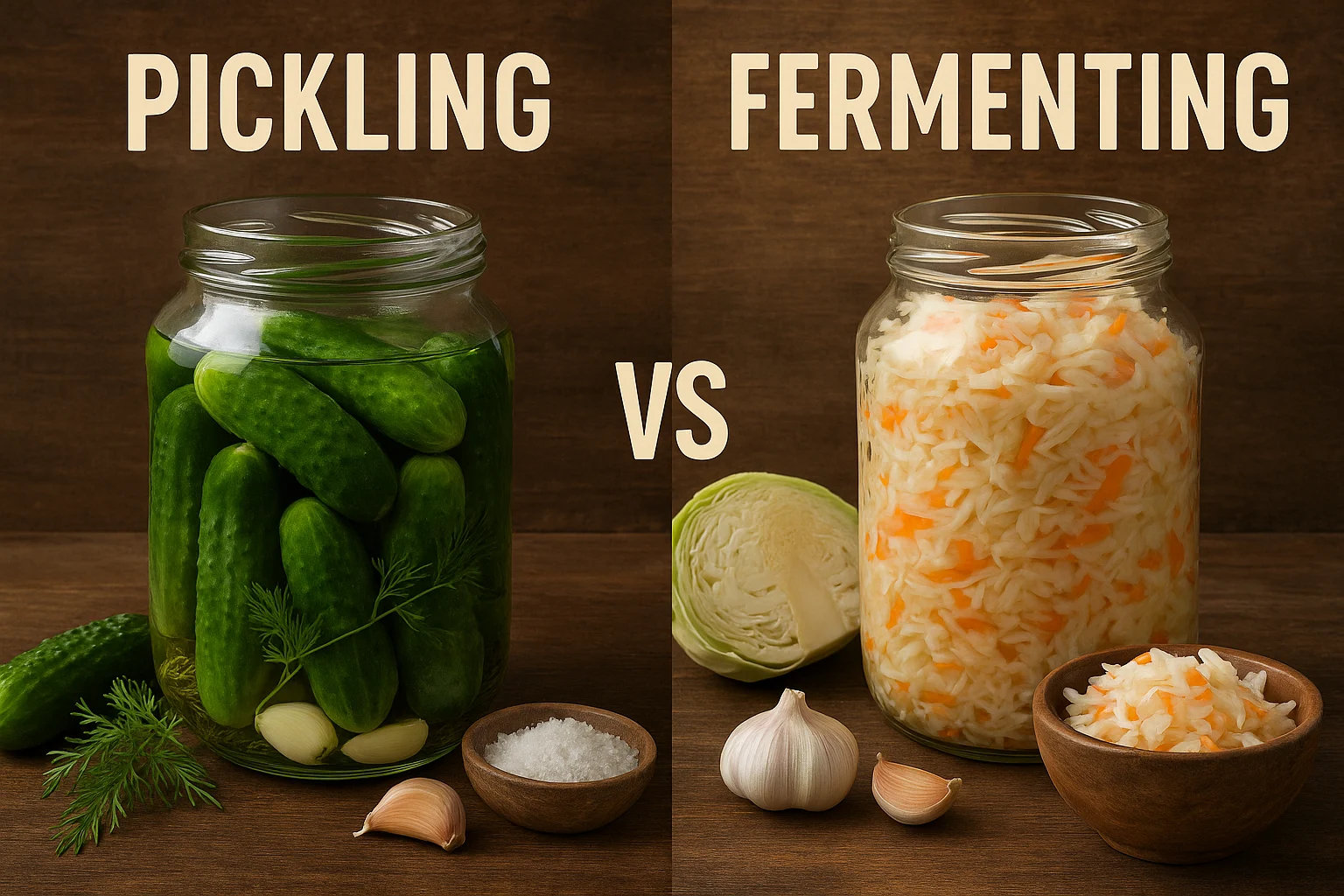Unlocking the Longevity of Pickles: Your Guide to Everlasting Tangy Delights
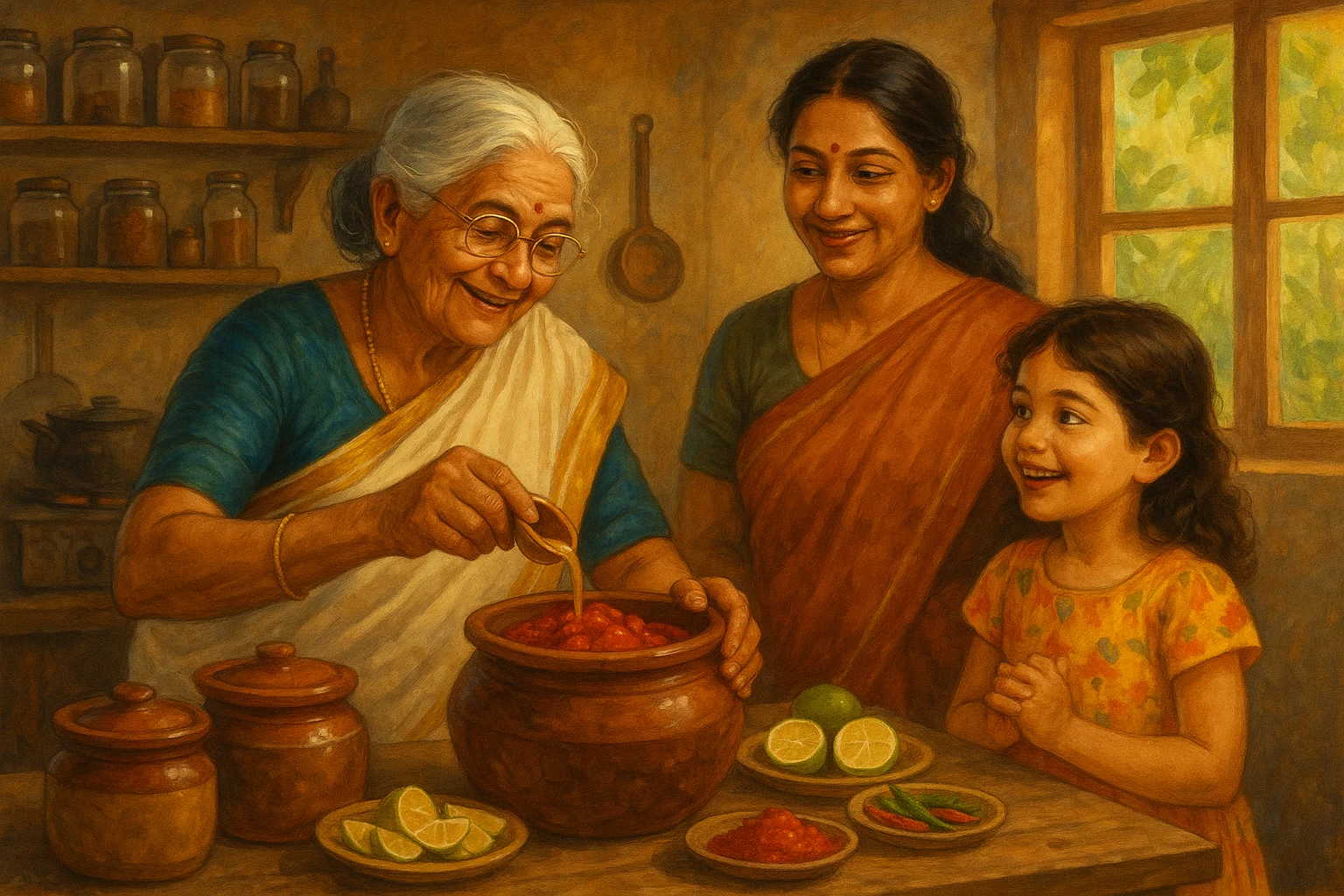
Pickles or as we lovingly call them achar, are a staple in Indian kitchens. That tangy kick alongside a simple dal chawal or the spicy crunch tucked into a paratha roll, there is nothing quite like it. Every region has its own take, every kitchen holds its secret recipe. But one thing everyone wonders at some point is, do pickles really last forever? The answer is not magic, it is method. In this blog, we will uncover the age-old kitchen wisdom and preserving techniques of pickle shelf life (Longevity of Pickles) that keep your homemade pickles tasting fresh and safe for months, even years. Let’s dive into the preserving secrets that make achar truly timeless.
The Building Blocks of Endurance: Quality Ingredients
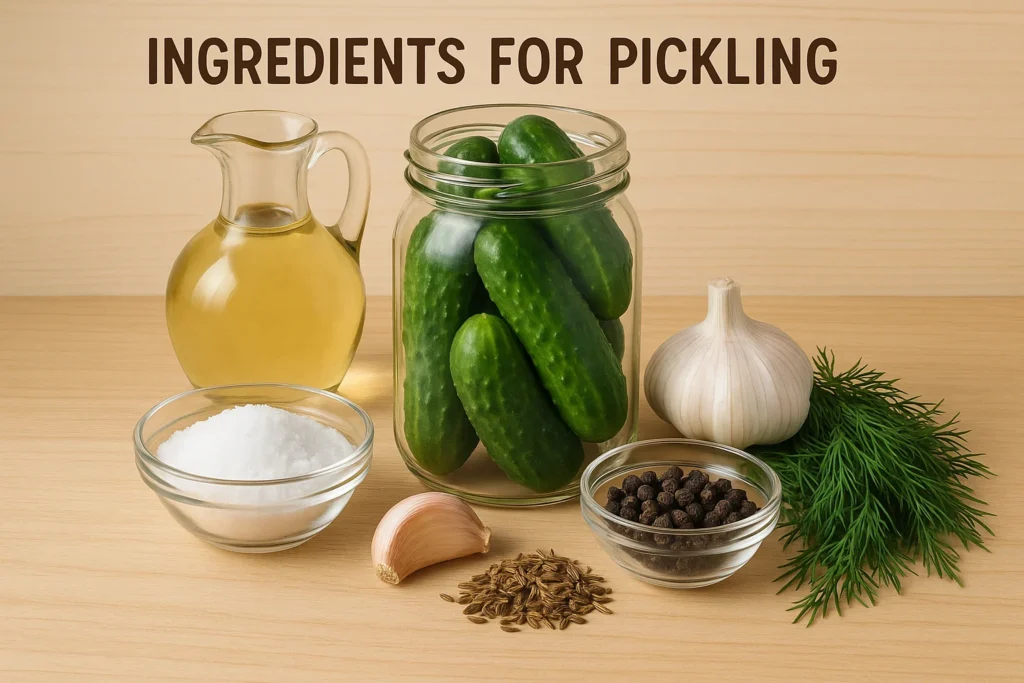
The longevity of pickles begins with the quality of its foundation. Choosing firm and fresh produce, whether it is mangoes, amla, cucumbers or carrots is essential for structural integrity during long storage. Whole and quality spices not only lend depth and complexity to flavour but also act as natural preservatives with antimicrobial properties. Equally vital is the use of preserving oil, a staple in Indian pickling that serves as both a flavour enhancer and a protective barrier against air and spoilage. Lastly, non iodized rock salt for pickles plays a critical role. It draws out moisture and wards off microbial growth without dulling its vibrant taste, maintaining both safety and flavour integrity.
The Cleanliness Code: Ensuring a Pristine Environment
Hygienic practices play a critical role in how long your pickles last. Moisture, even in tiny amounts, invites spoilage. Always wash fruits and vegetables thoroughly, then dry them completely, for moisture elimination sun-drying is ideal. Even a drop of water can trigger fungal growth. For preventing contamination, sterilise jars by washing them with hot soapy water, then boiling them or placing them in a hot oven. Make sure they are fully dry before use. And when serving, always use a clean, dry spoon. One careless dip can introduce bacteria and spoil the entire jar. Clean tools and dry storage are non-negotiable for safe, long-lasting pickles.
The Brine Barrier & Fermentation Finesse: The Preservation Core
A perectly pickle requires a strong brine which is usually a mixture of vinegar, salt and water. The key is vinegar acidity: use natural vinegar with at least 5% acidity to ensure effective preservation. Maintain a 1:1 vinegar-to-water ratio for optimal results. Proper immersion is critical: vegetables should be completely submerged with little to no air contact and ideally covered with a thin coating of oil. Pickle fermentation is also an important component of traditional Indian pickles. Beneficial bacteria sustain with time and sun curing, improving taste depth and preservation. This is the essence of a traditionally matured pickle.
Smart Storage & Spoilage Signals: Maximising Shelf Life
Pickle storage technique may help your pickles last pantry shelf life and retain their flavour and safety. When stored in an airtight container in a cool and dark pantry, shelf-stable pickles can last up to a year. However, refrigerated pickles, including homemade pickles, should not be stored for longer than three to four weeks. To prevent spoiling after opening, all pickles must be kept in the refrigerator. Watch for the following clear spoilage signs: mushy-like, surface mould, hazy or tinted brine, a bloated lid or a foul or disagreeable aroma. These are all indicators that the batch should be disposed of. Your pickles will stay crisp, saf, and fresh if you store them in places with low light levels and temperatures. Maintaining consistent temperature and low light exposure ensures your pickles stay crisp, safe and flavourful.
Conclusion: Your Pickle Longevity Unveiled
A few basic homemade pickle tips are essential to preserving its authentic flavours: use only the best ingredients, practice good hygiene, perfect your brine and fermentation and store them carefully. Early detection of spoiling indicators safeguards your health and your culinary endeavours. Every jar you open will have the same tang, crunch and authenticity as the day it was sealed if you follow these guidelines for preserving success.
Looking for quality pickles in Kerala?
If you are ready to enjoy the deliciousness of the pickle, Vebka Foods in Kerala offers traditionally prepared pickles made from premium ingredients and time honored methods. Each jar captures the depth of flavour and long lasting freshness that comes from generations of kitchen wisdom, no shortcuts, just pure, authentic taste.

